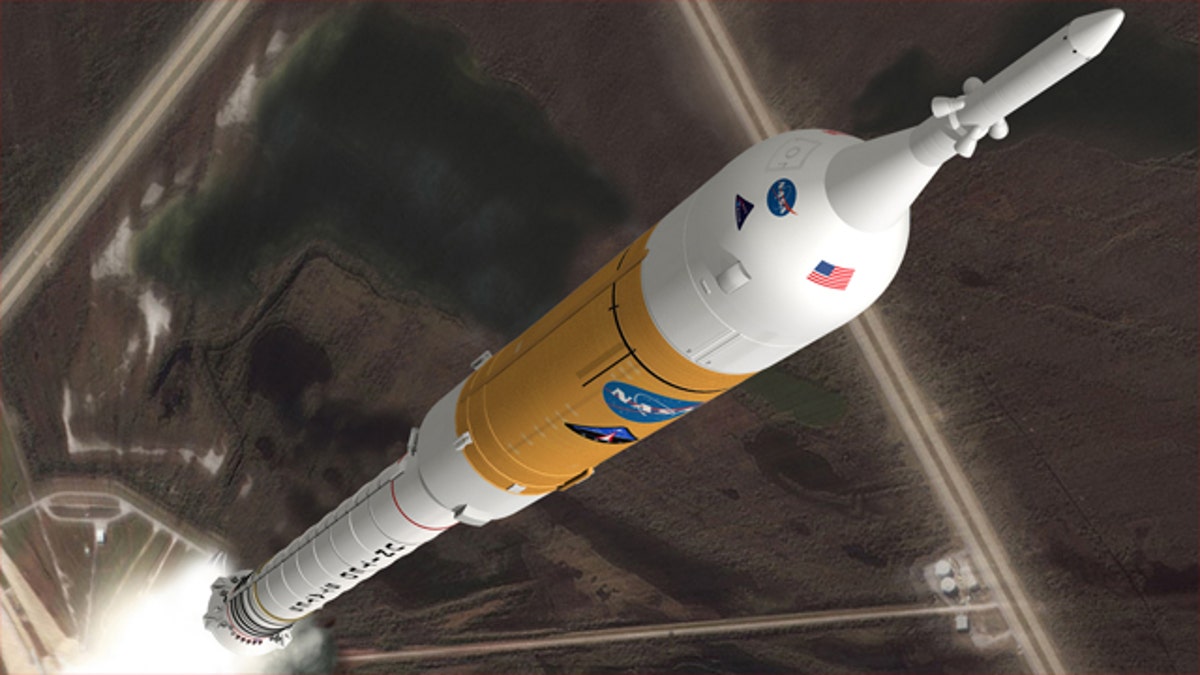
Artist's impression of Ares I launch (NASA)
Stifled by legislative bottlenecks, NASA will be forced to continue an already defunct rocket program until March, costing the agency half a billion dollars while adding more hurdles to the imminent task of replacing the space shuttle.
Constellation is the umbrella program that includes the Ares I, the rocket NASA has been building to replace the space shuttle as means of transport to and from the International Space Station, as well as other spacecraft that would have been capable of performing a variety of missions. President Obama cancelled Constellation last year, but thanks to congressional delays and inaction, the program simply won't die -- and it's costing big bucks.
A large portion of the estimated $500,000,000 NASA will spend on the canceled rocket in the next few months -- $165 million of it -- will be paid to Alliant Techsystems, or ATK, toward the development of a solid-rocket first stage for the Ares I the rocket. However, with the cancellation of the Constellation program as part of the President’s new NASA plan, signed into law in October, there are doubts that the technology will ever be used, reported the Orlando Sentinel.
It’s the frustrating result of an ongoing political battle that stretched throughout this year. With the potential cancellation of Constellation looming, lawmakers inserted clauses into NASA’s 2010 budget to protect Ares I jobs in their home states, effectively preventing NASA from shutting down the program pending a new budget from Congress.
This was expected to happen prior to the beginning of the fiscal year on October 1, but Congress instead extended the current budget until March. This inaction leaves NASA obligated to keep Ares I alive -- despite the program’s cancellation.
NASA is currently spending almost $100 million a month on Ares I, or roughly $500 million from October to March 2011, according to the agency. ATK didn't respond to FoxNews.com requests for additional information.
Such unnecessary and potentially wasteful expenditures come at an especially inopportune time, as the agency struggles with budget issues. It now faces the expensive task of modernizing the Kennedy Space Center and transforming it into a "21st-century spaceport," a project that now looks to be indefinitely delayed.
NASA remains hopeful that work put into Ares I could have its benefits, however. Some programs from the new plan, such as a heavy-lift rocket, could employ the solid-rocket technologies still being developed.
“Much of the Ares 1 work likely will be directly applicable to a heavy-lift vehicle if a shuttle-derived architecture is selected, including five-segment boosters, tank structures, upper-stage engine and avionics,” NASA spokesman Michael Cabbage told the Orlando Sentinel.
Regardless, until Congress takes action, the program's short term purpose is far from certain and new projects have been inevitably stalled, according to J.D. Harrington, a Public Affairs Officer at NASA.
"Current CR language requires we continue work on the Constellation program at FY10 levels, yet it doesn't include money for us moving forward with a new heavy lift architecture," Harrington told FoxNews.com. "We expect much of the current Constellation work to migrate forward but won't know for sure until decisions are made on a path going forward."




